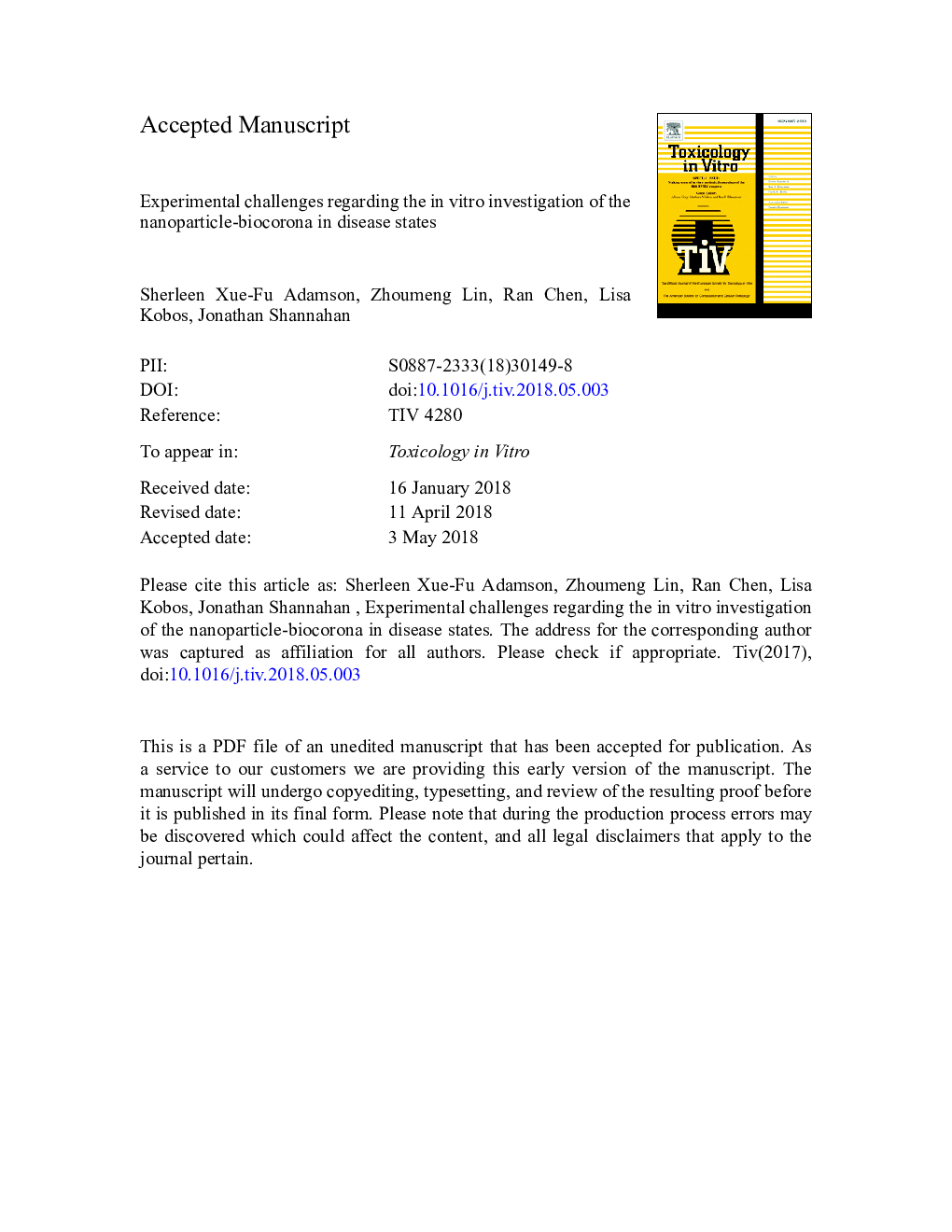| Article ID | Journal | Published Year | Pages | File Type |
|---|---|---|---|---|
| 8553739 | Toxicology in Vitro | 2018 | 44 Pages |
Abstract
Toxicological evaluation of nanoparticles (NPs) requires the utilization of in vitro techniques due to their number and diverse properties. Cell culture systems are often lacking in their ability to perform comparative toxicity assessment due to dosimetry issues and capacity to simulate in vivo environments. Upon encountering a physiological environment, NPs become coated with biomolecules forming a biocorona (BC), influencing function, biodistribution, and toxicity. Disease-induced alterations in the biological milieu can alter BC formation. This study evaluates the role of low-density lipoprotein (LDL) in altering macrophage responses to iron oxide (Fe3O4) NPs. BCs were formed by incubating Fe3O4 NPs in serum-free media, or 10% fetal bovine serum with or without LDL present. Following exposures to a normalized dose (25â¯Î¼g/mL), macrophage association of Fe3O4 NPs with a LDL-BC was enhanced. TNF-α mRNA expression and protein levels were differentially induced due to BCs. Cell surface expression of SR-B1 was reduced following all Fe3O4 NPs exposures, while only NPs with an LDL-BC enhanced mitochondrial membrane potential. These findings suggest that elevations in LDL may contribute to distinct BC formation thereby influencing NP-cellular interactions and response. Further, our study highlights challenges that may arise during the in vitro evaluation of disease-related variations in the NP-BC.
Related Topics
Life Sciences
Environmental Science
Health, Toxicology and Mutagenesis
Authors
Sherleen Xue-Fu Adamson, Zhoumeng Lin, Ran Chen, Lisa Kobos, Jonathan Shannahan,
